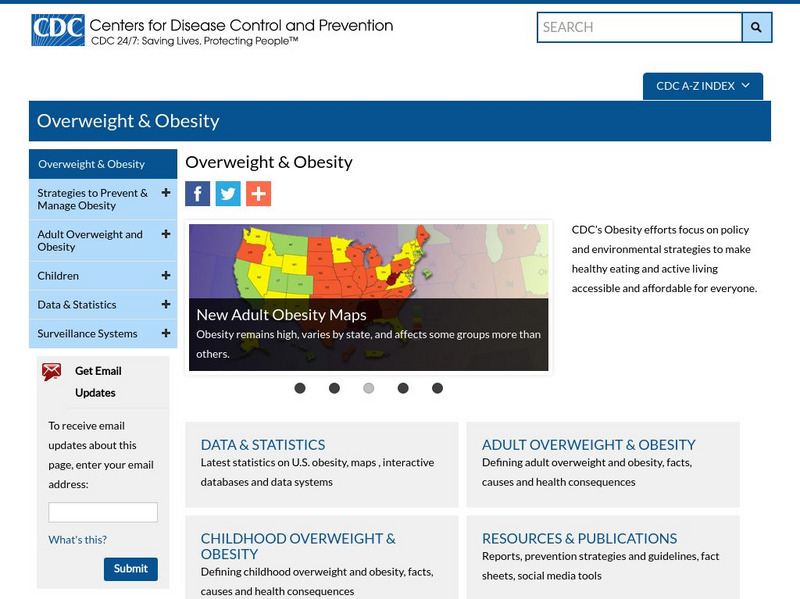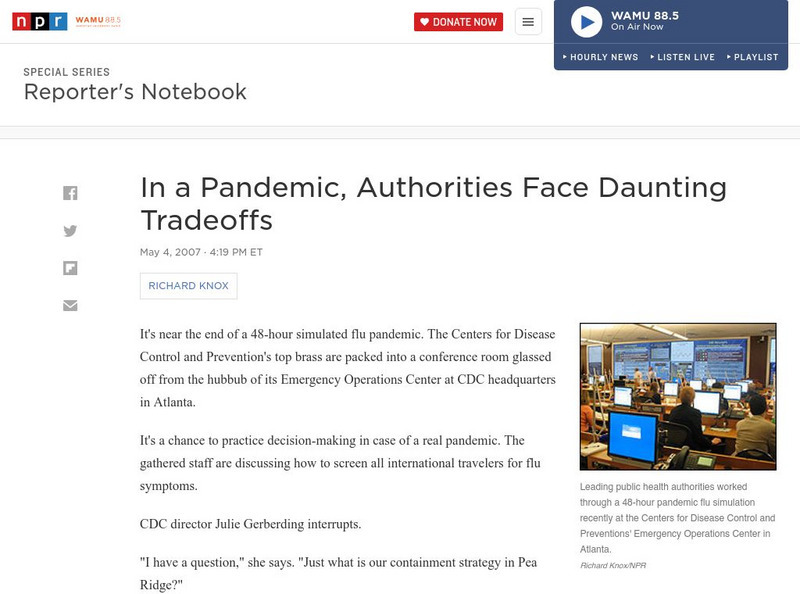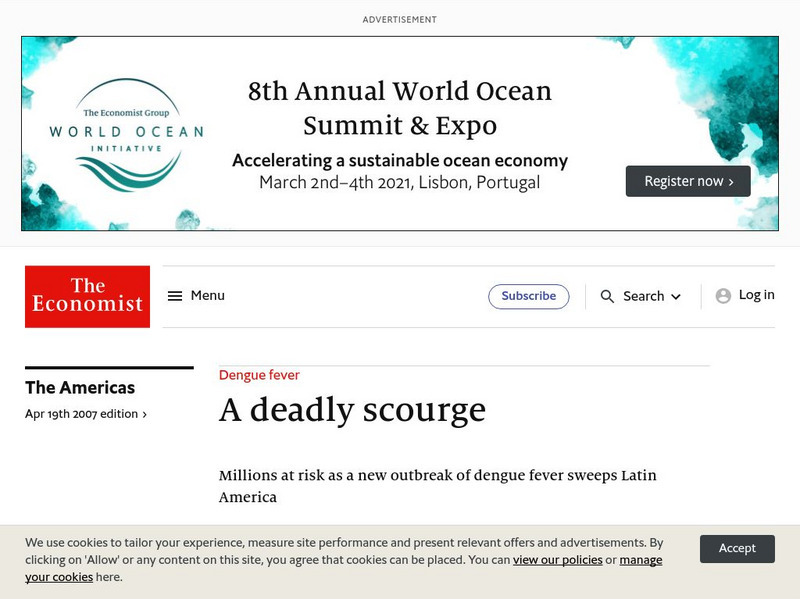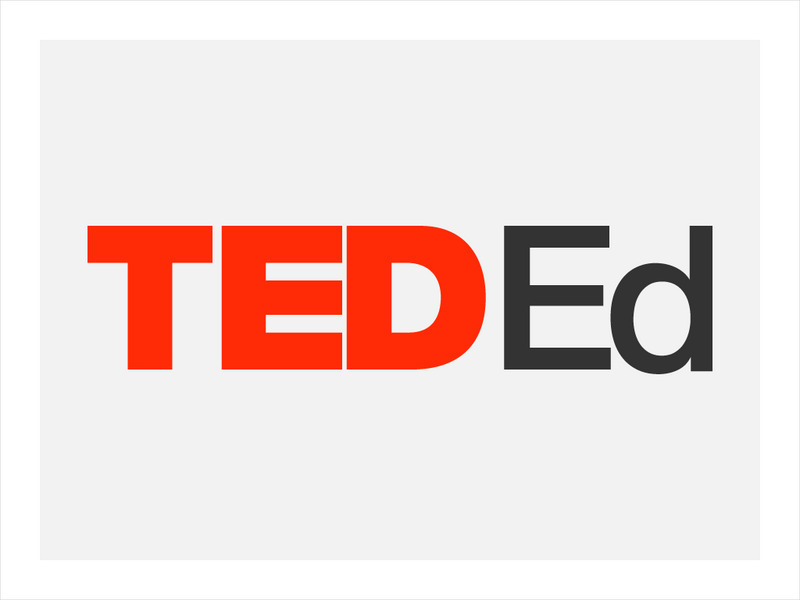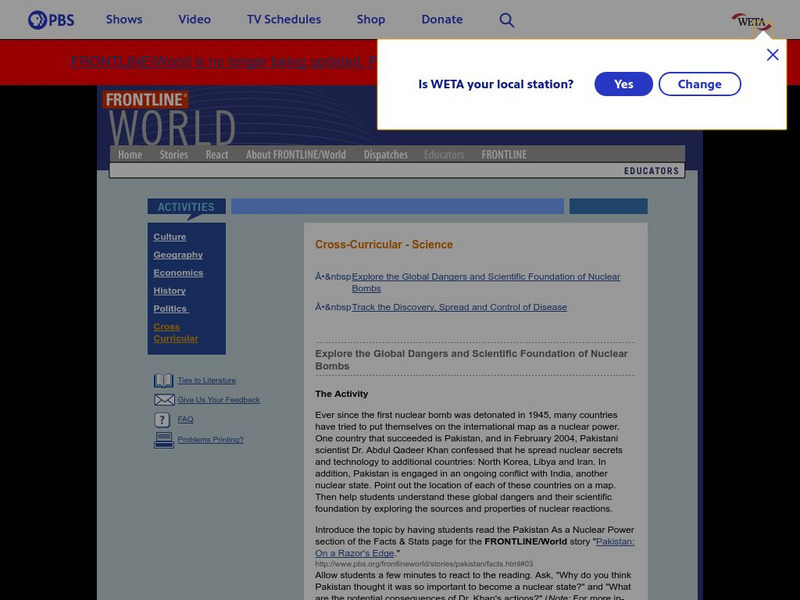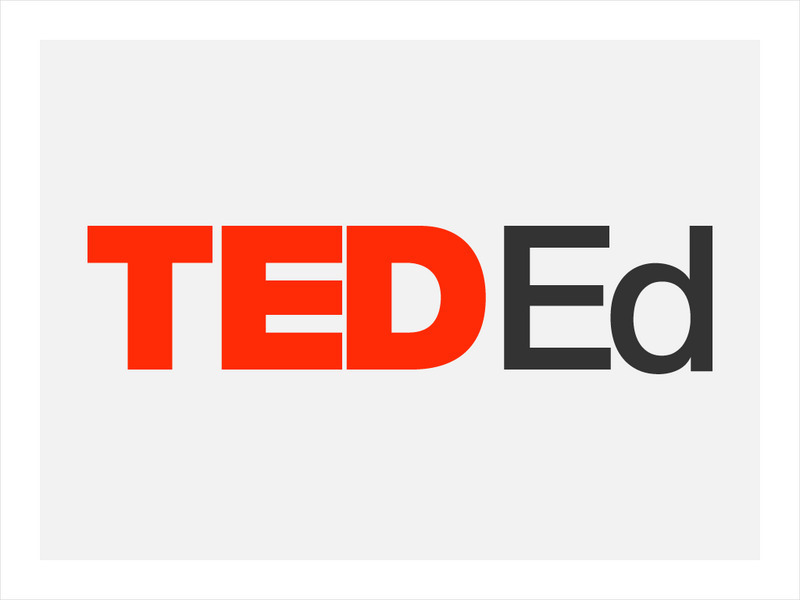Hi, what do you want to do?
Centers for Disease Control and Prevention
Centers for Disease Control: Obesity and Overweight Introduction
The CDC provides a collection of information on obesity and the concerns that come with it.
OpenSciEd
Open Sci Ed: Covid 19 & Health Equity, High School Science
This unit is designed to support students in understanding the COVID-19 pandemic, transmission of the COVID-19 virus, and the impacts of the pandemic on communities, especially communities of color.
NPR: National Public Radio
Npr: In a Pandemic, Authorities Face Daunting Tradeoffs
A May 2007 report on a Center for Disease Control exercise designed to study decision making in the event of a pandemic. Also provides links to related NPR stories.
PBS
Pbs Online News Hour: Extra: 2009 H1 N1 Flu: The Next Pandemic? (Lesson Plan)
This lesson plan focuses on viruses, particularly the Swine Flu, and allows students opportunities to simulate how viruses spread and the results.
TeachEngineering
Teach Engineering: Passing the Bug
Students apply concepts of disease transmission to analyze infection data, either provided or created using Bluetooth-enabled Android devices. This data collection may include several cases, such as small static groups (representing...
The Economist
The Economist: Dengue Fever: A Deadly Scourge
This article describes the growing epidemic of dengue fever, or DHF, in Mexico and other tropical areas. The virus is caused by mosquitos. Registration is required.
TED Talks
Ted: Ted Ed: How Pandemics Spread
A discussion about the globalization of disease, and the implications of a pandemic. Mark Honigsbaum describes the history of pandemics and how scientists can help prevent future outbreaks. [8:00]
A&E Television
History.com: How Five of the World's Worst Pandemics Finally Ended
As human civilizations flourished, so did infectious disease. Large numbers of people living in close proximity to each other and to animals, often with poor sanitation and nutrition, provided fertile breeding grounds for disease. And...
Stanford University
Stanford University: The Influenza Pandemic of 1918
Article that shows through text, photos, and historically significant documents the toll of the flu epidemic of 1918 in America.
Harvard University
Harvard University Library Open Collections Program: The Yellow Fever
Students investigate the yellow fever epidemic in Philadelphia. Some topics explored are Benjamin Rush, the Santo Domingan influence, and background information on the yellow fever. Additional resources include web pages, references, and...
Harvard University
Harvard University Library Open Collections Program: Spanish Influenza
Students investigate Spanish influenza in North America. Some topics explored are reactions, responses, and legacies of Spanish influenza. Additional resources include web pages, manuscripts, references, and publications.
Ducksters
Ducksters: Biology for Kids: Historic Epidemic and Pandemic Diseases
Investigate the historic epidemic and pandemic diseases such as the Plague of Athens, Black Death, Spanish flu, cholera, and smallpox on this site.
Ducksters
Ducksters: Biology for Kids: Epidemics and Pandemics
Kids learn about epidemics and pandemics in the science of biology including how they begin, how diseases spread, and the stages of a pandemic.
Mayo Clinic
Mayo Clinic: Encephalitis
This site from the MayoClinic.com provides a great look at the acute inflammation of the brain caused by a viral infection known as encephalitis. Sections in the article include: signs and symptoms, causes, screening, treatment,...
Science Buddies
Science Buddies: Program Your Own Covid 19 Simulator With Scratch
This activity uses the kid-friendly programming language Scratch to write a simulation that uses bouncing dots to represent healthy and sick people. The simulation will show how we can take measures to slow the spread of a transmissible...
PBS
Pbs Teachers: Cross Curricular: Science
Explore global health issues by participating in research, discussions and presentations on topics such as exploring the dangers and scientific foundation of nuclear weapons and tracking the discovery, spread and control of disease.
OpenSciEd
Open Sci Ed: Covid 19 & Health Equity, Middle School Science
The unit focuses on the question How can people help end pandemics? It is designed to teach students about the COVID-19 pandemic, transmission of the COVID-19 virus, and the impacts of the pandemic on communities.
OpenSciEd
Open Ed Sci: Covid 19 & Health Equity, Grades K 2
In this unit, learners explore the basics of how Covid-19 affects people, and design investigations to explore how it spreads from person to person, and what we can do to prevent that spread.
Other
Gartner: 6 Trends on the Gartner Hype Cycle for the Digital Workplace, 2020
The need to improve the digital resiliency of the workforce during and after the COVID-19 pandemic has drastically accelerated trends in digital workplace technology. Read about the significant ways the pandemic is changing the world of...
Khan Academy
Khan Academy: Polio Epidemiology
An overview of the polio as an epidemic prior to 1900 and how the infectious disease has slowly diminished but for three countries (Nigeria, Afghanistan, and Pakistan).
Other
Typhus Fever
Good overview of typhus fever. Includes the different forms of typhus, how it is spread, and what can be done to prevent and treat it.
TED Talks
Ted: Ted Ed: Mysteries of Vernacular: Quarantine
Stemming from the days of bubonic plague in Medieval Europe, quarantines were originally used to prevent potentially plague-infested ships from disembarking at a port city. Jessica Oreck and Rachael Teel explain how the length of the...
Hofstra University
Hofstra Univ: Why Was Bubonic Plague So Devastating to European Society? [Pdf]
The Bubonic Plague or "Black Death" came out of the eastern Mediterranean along shipping routes, reaching Italy in the spring of 1348. By the time the epidemic was abating in 1351, between 25% and 50% of Europe's population had died. The...
OpenSciEd
Open Sci Ed: Covid 19 Infection Spread Basic
This model explores the spread of an airborne respiratory illness like COVID-19, through a community, based on various social interactions and remediation measures.





